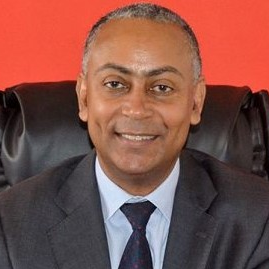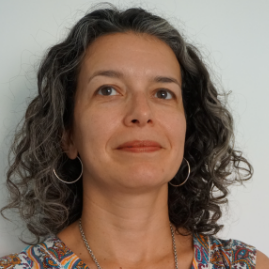Places of Enunciation, History and Memory
-
 Raquel LimaCES, UC.
Raquel LimaCES, UC. Solange MacamoUniversidade Eduardo Mondlane.
Solange MacamoUniversidade Eduardo Mondlane. German Santana PerezUPL-Gran Canaria.
German Santana PerezUPL-Gran Canaria. António Correia e SilvaUniversidade de Cabo Verde.
António Correia e SilvaUniversidade de Cabo Verde.Guest speakers:
Raquel Lima (CES, UC)
Solange Macamo (Universidade Eduardo Mondlane)
Germán Santana Pérez (UPL-Gran Canaria)
António Correia e Silva (Universidade de Cabo Verde)Considering the vast textual production and the discussion on the themes here proposed, this conference aims at a cross-discussion on the different schools that reflected on this concept, and it urges us to look for, both in history and in memory, the methodological possibility of the construction of a dialogue which hopefully will allow us to discover and to enlarge the different fields that this discussion is gradually reaching. One of the aims of this round table is to encourage the foundation of a platform of wide debate, capable of receiving the contributions of various social players so that the situated knowledges can gradually grow into the filling of void spaces, conditions of speech productions, agency, experience and representativeness. Starting from the notion that the place of enunciation can sometimes modify the epistemic nature of the discourse (the historical discourse, the memorial discourse or the difference discourse), it is urgent to map down the margins and to find in history the challenges in order to build new discourses. The place of enunciation can metamorphose into a place of hearing with an open space to the clarification of thought between past and present.
Transits and diaspora between continuities and change.
-
 Hélder BahuISCED-Huíla.
Hélder BahuISCED-Huíla. Alberto López BargadosUniversitat de Barcelona.
Alberto López BargadosUniversitat de Barcelona. Mariana CandidoUniversity of Notre Dame.
Mariana CandidoUniversity of Notre Dame. Jorge MalheirosIGOT-UL.
Jorge MalheirosIGOT-UL.Guest speakers:
Hélder Bahu (ISCED-Huíla)
Alberto López Bargados (Universitat de Barcelona)
Mariana Candido (University of Notre Dame)
Jorge Malheiros (IGOT-UL)Structuring axes of both global modernity and contemporaneity, African transits and diasporas are also 'territories' that resist totalizing mappings and homogenizing narratives. They require mobile cartographies, without abandoning long-term and large-scale perspectives, capable of showing that Africa has always been in the world, putting its knowledge and cultural practices in circulation. In view of the great presence of African and Afro-descendant people in all countries, which increasingly claim multiple affiliations and identities, it is intended to discuss continuities and changes regarding subjects and contexts, as well as disciplinary agendas of this core area for Contemporary African Studies. In a moment of global radicalization of the exclusionary power of the borders - external and internal to states - and in the face of neo-nationalist outbreaks visible in different latitudes, it is urgent to rethink the role that is both connective and disruptive of mobility and transit of Africans and Afro-descendants, revaluing the border as a bridge and a contact zone between peoples, cultures and societies.
Agendas and imaginings of Cooperation and Development
-
 Clara CarvalhoCEI-IUL e AEGIS.
Clara CarvalhoCEI-IUL e AEGIS. Manuel Ennes FerreiraISEG/UL.
Manuel Ennes FerreiraISEG/UL. Albert RocaGESA e GIEDEM,Universitat de Barcelona
Albert RocaGESA e GIEDEM,Universitat de Barcelona Odete SemedoUniversidade Amílcar Cabral.
Odete SemedoUniversidade Amílcar Cabral.Guest speakers:
Clara Carvalho (CEI-IUL e AEGIS)
Manuel Ennes Ferreira (ISEG/UL)
Albert Roca (GESA e GIEDEM, Universitat de Lleida)
Odete Semedo (Universidade Amílcar Cabral)Cooperation and development, in their multiple versions, refer us more and more to uncomfortable questions about errors. Errors in proposals, approaches, and failed actions, perspectives purposely focused on growth. Our past experience sheds light on vices of dominance, our present experience hides them under the goodness of the Agendas. Hope is animated today in the growing emergence of movements for a better world, demonstrations of the awareness of the need to act for change, for rights, for justice, for sustainability, for peace. New paths need to be encouraged that may safeguard human achievement and the future of the planet. This round table is intended to be a place to debate the complexity of all these issues.
Abreu Events
For general information about the congress, including registration, please contact us at:
This email address is being protected from spambots. You need JavaScript enabled to view it.
(+351) 21 415 6124Organization




